Brief Overview of Content
In this post, you’ll discover the crucial role of bees in our food supply, as they are responsible for one out of every three bites we eat. Learn about the power of pollination and how bees contribute to crops like watermelons, berries, and apples. We’ll explore the economic impact of bees, revealing their contribution of $235 to $577 billion annually to global food production. Imagine a world without bees and the limited variety of foods we would face, including the disappearance of coffee, fruits, and nuts. You’ll also find out about other important pollinators like butterflies and bats in our pollinator squad. Finally, discover how you can help with Bloomer™ Filter Tips, which support pollinator habitats, and enjoy a special discount code “AmbassadorBloomer” for 10% off your order.
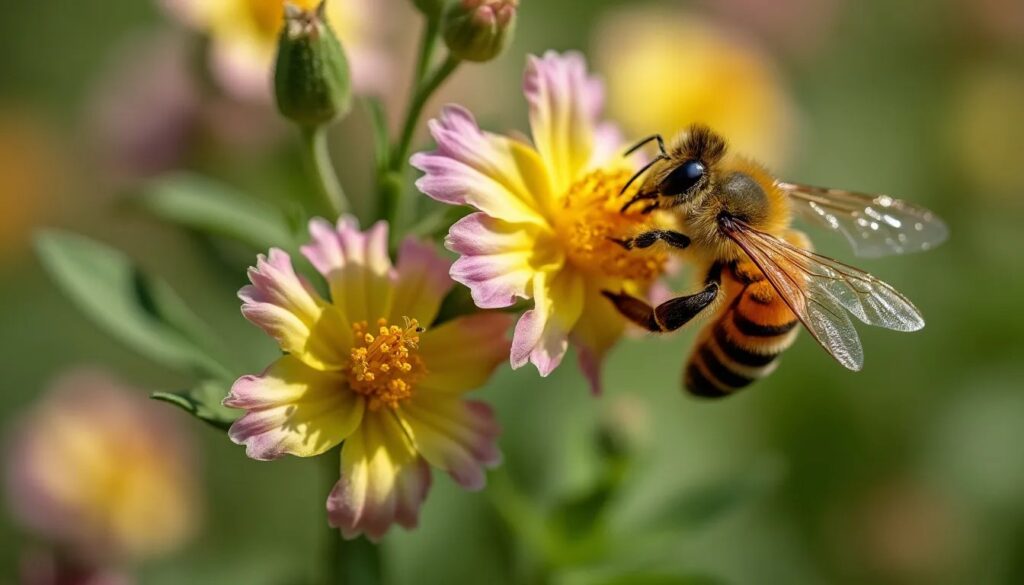
The Bee-lliant Truth About Our Food
Did you know that bees are responsible for one out of every three bites of food we consume? These industrious pollinators are the unsung heroes of our food system, playing a vital role in global agriculture. Bees pollinate approximately 80% of our flowering crops, contributing significantly to food security and dietary diversity.
The Impact of Bee Pollination
- Food Variety: Without bees, our plates would look drastically different, and our diets would be severely limited.
- Agricultural Productivity: Bee pollination is essential for many fruits, vegetables, nuts, and oilseed crops.
- Economic Value: Bees contribute billions of dollars annually to the global economy through their pollination services.
Threats to Bee Populations
Unfortunately, bee populations face significant challenges:
- Pollution: Environmental contaminants affect bee health and behavior.
- Pesticides: Certain agricultural chemicals pose serious risks to bee colonies.
- Habitat Loss: Urbanization and changing land use patterns reduce bee-friendly environments.
Understanding and addressing these threats is crucial for maintaining our food production systems. By protecting bees, we safeguard not only biodiversity but also our own food security and agricultural sustainability.
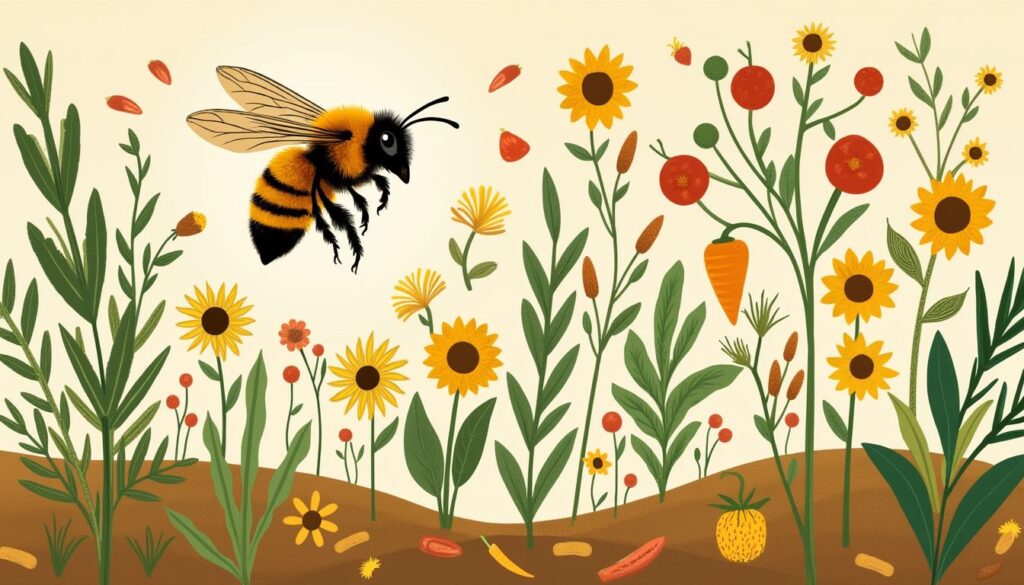
The Power of Pollination
Bees are nature’s ultimate multitaskers. A single honeybee can visit between 50-1000 flowers in just one trip. That’s like visiting every house in your neighborhood in a single afternoon! This incredible work ethic translates into an astounding impact on our food supply:
- Bees pollinate watermelons, cantaloupes, cucumbers, and squash
- They’re essential for most berry crops, apples, and citrus fruits
- Even our beloved broccoli and asparagus rely on these busy pollinators
While other pollinators like butterflies, birds, and certain flies could partially compensate if bees died, they likely wouldn’t be able to fully maintain our current food supply
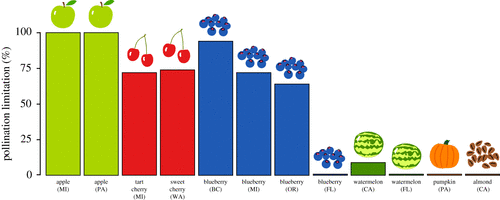
Beyond the Hive: The Economic Buzz
The impact of bees extends far beyond our dinner tables, buzzing straight into the heart of the global economy. These tiny creatures are economic powerhouses, contributing an astounding $235 to $577 billion annually to global food production through their pollination services. To put this in perspective, that’s more than the GDP ( Gross Domestic Product ) of many countries!
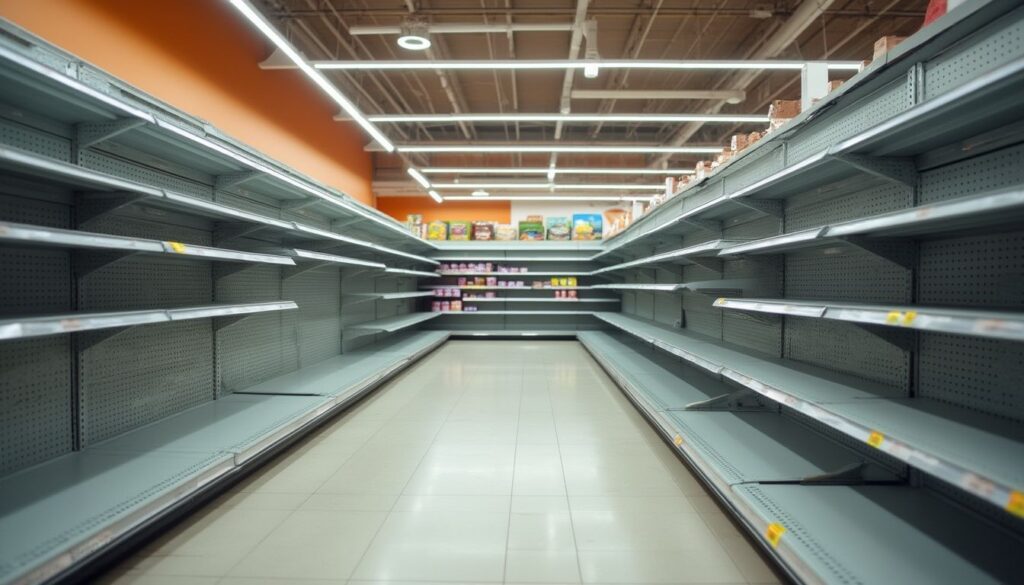
A World Without Bees: A Stark Reality We Must Avoid
Imagine walking into a grocery store and finding bare shelves where vibrant produce once stood. The few remaining items – wheat, corn, and rice – paint a bleak picture of our food supply. This isn’t a scene from a dystopian novel; it’s a stark possibility if we fail to protect our bee populations.
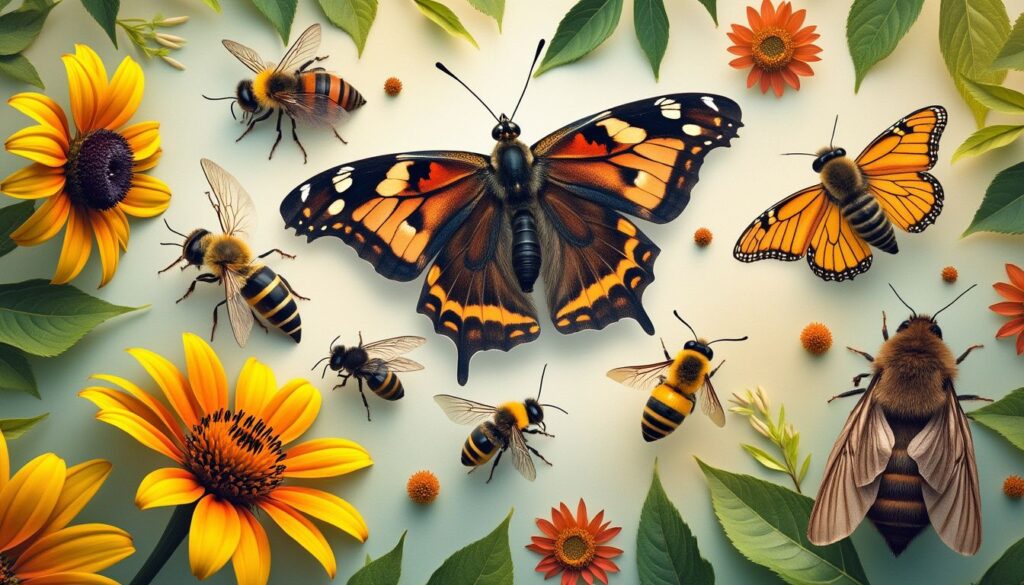
The Disappearing Diversity
Without bees, our diets would become drastically limited:
- Beverages: Coffee and certain teas would disappear from our morning routines.
- Fruits: Say goodbye to apples, strawberries, and watermelons.
- Vegetables: Broccoli, cucumbers, and pumpkins would vanish.
Nuts: Almonds and cashews would become rare luxuries.
Not Just Bees: The Pollinator Squad
While bees are the superstars of pollination, they’re not alone in this crucial task. Butterflies, moths, bats, and even some birds play vital roles in pollinating our plants. Together, these pollinators form a diverse team that keeps our ecosystems thriving and our food supply diverse.
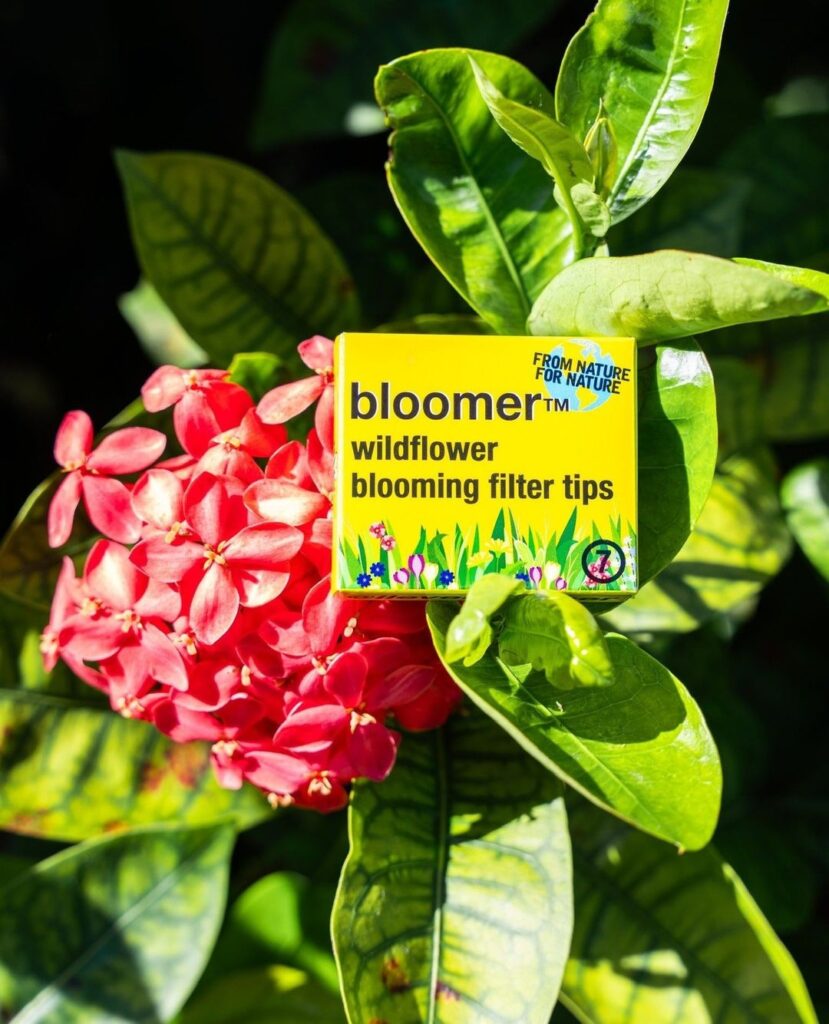
How You Can Help: The Bloomer™ Revolution
Now that you understand the crucial role of bees and pollinators, you might be wondering, “What can I do to help?” We have the perfect solution: Bloomer™ Filter Tips. “Smoke Trees and Save Bees“
These unique filter tips contain wildflower seeds that bloom when discarded, it will create new habitats for bees and other pollinators.
By choosing Bloomer™ Filter Tips, you’re not just reducing waste – you’re actively contributing to pollinator conservation with every smoke. It’s a small change that can make a big difference in supporting our buzzing friends and the entire ecosystem they sustain.
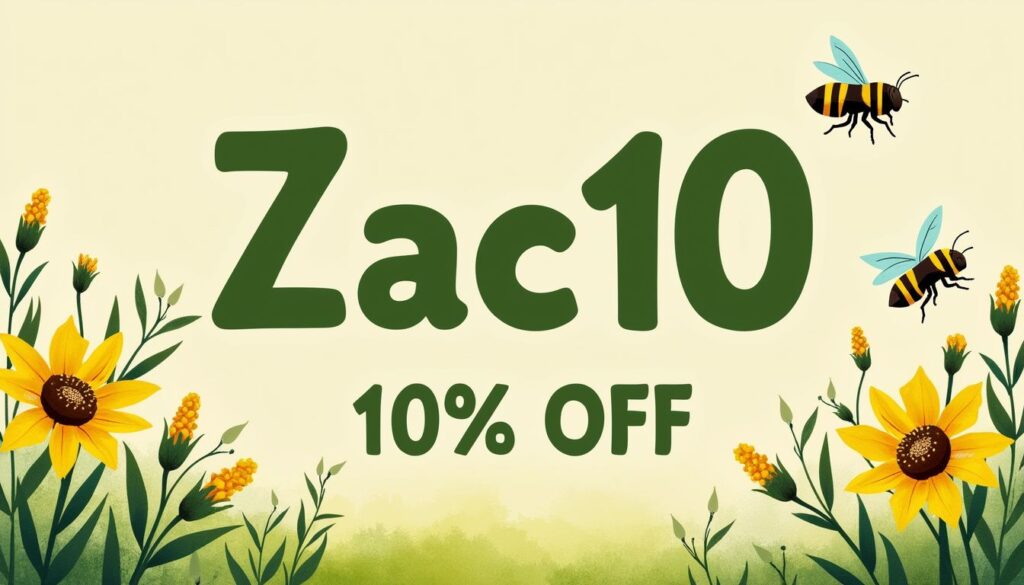
A Special Gift for Our Eco-Conscious Readers
Ready to join the pollinator protection movement? We have a special offer just for you! Use the discount code “AMBASSADORBLOOMER” at checkout to get 10% off your order of Bloomer™ Filter Tips. Click Here to shop now
Remember, every Bloomer™ Filter Tip you use is a step towards a greener, more pollinator-friendly world. Let’s work together to ensure a future where bees continue to buzz, flowers continue to bloom, and our food supply remains diverse and abundant
Join us in this sweet revolution – because every bee matters, and so does every action we take to protect them!
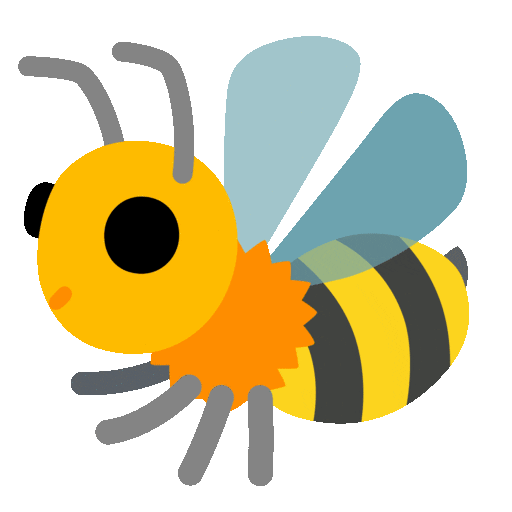
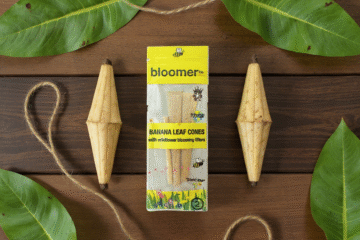
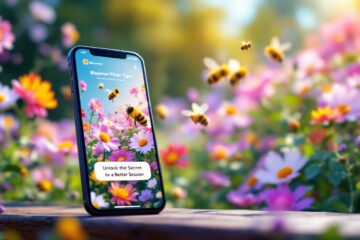
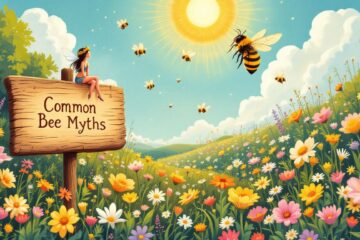
5 Comments
From Waste to Wildflowers: How to Plant Bloomer Tips for Pollinator Support - Ambassador Bloomer · October 24, 2024 at 7:20 am
[…] such as Bloomer filter tips, you’re not only helping the environment but also supporting economic stability in […]
Limited Edition Bloomer™ Filter Tips: A Halloween Choice That Saves Bees!- Ambassador Bloomer · October 29, 2024 at 6:35 am
[…] Halloween filter tips are more than just festive accessories—they’re a commitment to saving bees and supporting pollinators. Here are eight reasons why choosing Bloomer makes a […]
Get Your Bloomer Store Discount Code: Enjoy Eco-Friendly Savings Today! - Ambassador Bloomer · November 1, 2024 at 3:46 am
[…] Pollinator Support: Each filter tip contains wildflower seeds, helping to create new habitats for bees and other pollinators for every joint rolled! Learn more about the essential role of pollinators in our ecosystem in our blog post “No Bees, No Food”. […]
Introducing Ambassador Bloomer: Revolutionizing Smoking with Eco-Friendly Filter Tips Introducing Ambassador Bloomer: Revolutionizing Smoking with Eco-Friendly Filter Tips - Ambassador Bloomer · November 1, 2024 at 6:16 am
[…] It’s crucial to understand the link between bees and our food supply. Without bees, many of our favorite foods would disappear. To learn more about this vital connection and how Bloomer™ is addressing this issue, check out this informative article on the importance of bees and Bloomer’s role in supporting them. […]
Discover the Magic of Bloomer Banana Leaf Cones - Ambassador Bloomer · December 7, 2024 at 9:18 am
[…] Supports Pollinators: Planting wildflowers helps combat the alarming decline in bee populations. […]